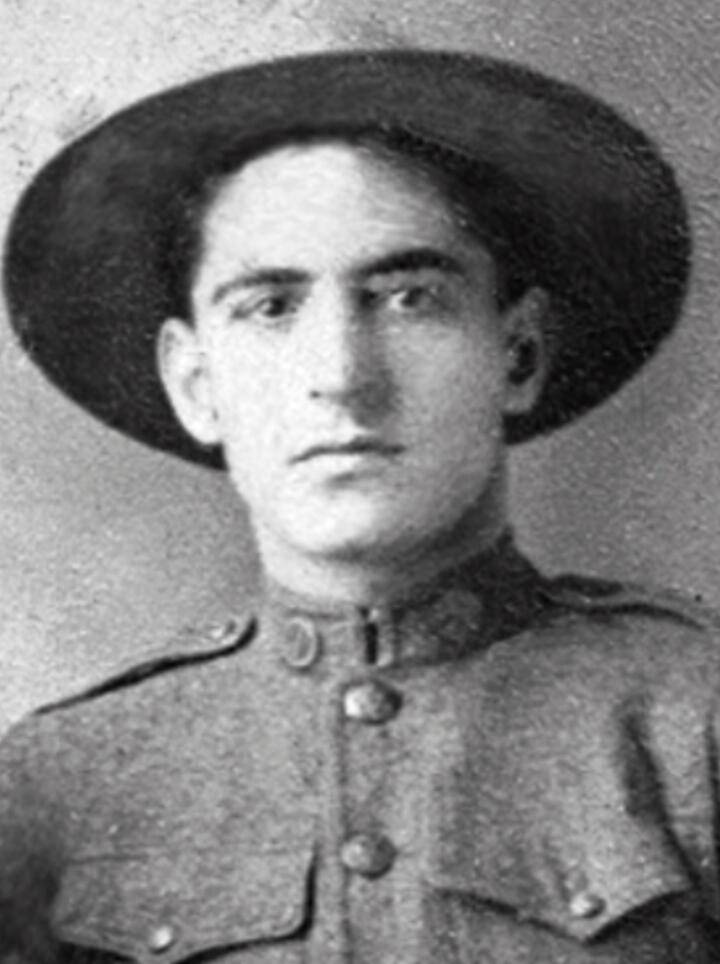Army Private First Class George Dilboy - World War I
USCIS Detroit District and Field Offices and Application Support Center

Born in the Greek settlement of Alatsata, which is today located in western Turkey, George Dilboy and his family emigrated to America in 1908 when he was 12 years old. They settled first in Keene, New Hampshire, and then in Somerville, Massachusetts. Dilboy returned to mainland Greece to fight as a volunteer in the Greek Army in Thessaly in the First Balkan War of 1912 and in Macedonia during the Second Balkan War of 1913. Returning to Somerville in 1914, he went to school and worked for a few years before volunteering to fight in the U.S. Army in the Mexican Border War from 1916 – 1917. He obtained an honorable discharge, but within months, Dilboy re-joined the U.S. Army as a private first class to fight in the trenches of France during World War I.
On July 18, 1918, near Belleau, France, Dilboy and his platoon secured a vital observation point along a railroad embankment. After an enemy machine gun positioned 100 yards away opened fire on the platoon, Dilboy stood on the railroad track, fully exposed to view, and immediately returned fire. Failing to silence the gun, Dilboy disregarded his own safety, fixed his bayonet, and rushed forward through a wheat field toward the machine gun.
He made it within 25 yards of the gun when he was hit several times, nearly severing his right leg above the knee. Despite these injuries, he continued to fire into the emplacement from a prone position, killing two of the enemy, dispersing the rest of the machine gun crew, and securing the area for his platoon. Dilboy later died of his injuries.
At the request of his father, Dilboy’s body was returned to his birthplace in Greece. After a funeral procession through the streets of Alatsata—said to have been witnessed by 17,000 mourners—his American flag-draped casket was placed in the Greek Orthodox Church of the Presentation to lie in state. However, the church fell into disrepair during the three-year Greco-Turkish War of 1919-1923, and Dilboy’s grave was desecrated.
In September 1922, President Warren G. Harding sent the USS Litchfield warship to Turkey to recover Dilboy’s remains. A Turkish guard of honor delivered his casket to an American landing party and Dilboy was returned to the United States. On Nov. 12, 1923, he was buried with full military honors at Arlington National Cemetery, where his gravestone proclaims his Medal of Honor status.
Dilboy had the distinction of being honored by three U.S. Presidents: Woodrow Wilson, who signed the authorization awarding the Medal of Honor; Warren G. Harding, who brought him back to Arlington National Cemetery; and Calvin Coolidge, former Governor of Massachusetts, who presided at his final burial. George Dilboy was the first Greek-American to be awarded the Medal of Honor during World War I. Gen. John Pershing listed George Dilboy as one of the 10 greatest heroes of the war.
